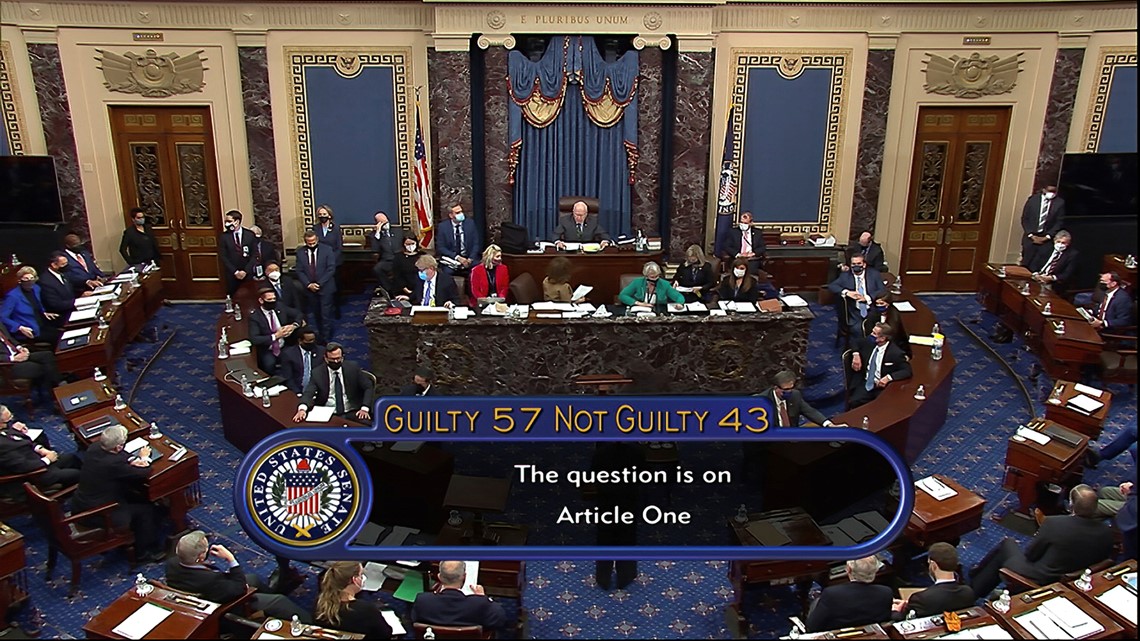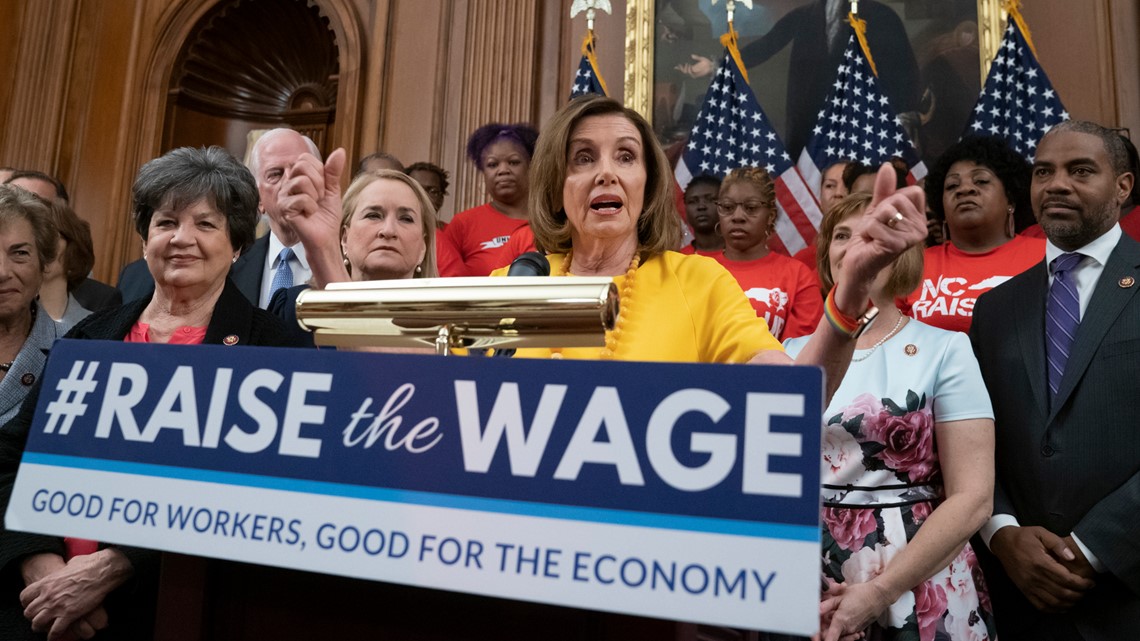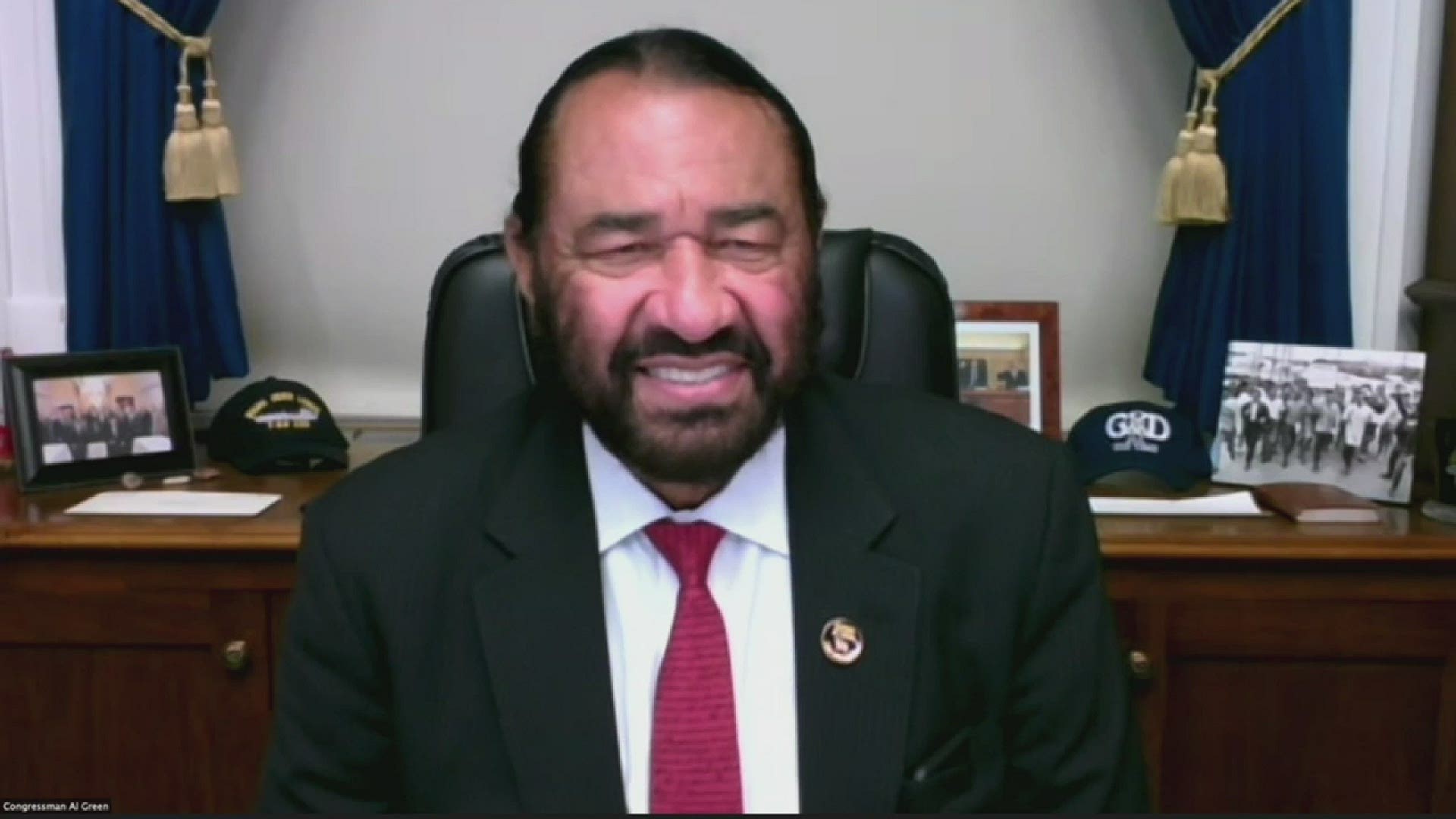DALLAS — Hours after the Senate acquitted former President Donald Trump for inciting the Jan. 6 insurrection, some Democrats are already looking to move on and pursue their legislative priorities in a Congress that remains bruised over the deadly Capitol attack last month.
“I don’t think there’s very much that we could have done differently,” said U.S. Rep. Al Green, D-Houston, in an interview on Sunday’s Inside Texas Politics.
He said he watched some of the trial from the Senate gallery.
“I think this time we did about all we could do. To be very honest with you, this is one of those circumstances where not just the president is on trial. The Senate is on trial. History will not be kind to the Senate,” Green added.


So, legislatively what comes next?
Approving a larger stimulus check remains paramount for Democrats.
“We have to pass it. We made a commitment. People are expecting the $2,000 that we said we wanted to deliver. We delivered on $600 of that. We need to deliver $1,400 more. My committee, the [House] Financial Services committee, is currently marking up legislation for about $75 billion. I have a portion of that that will deliver $10 billion of that to small business and very small businesses,” Green continued.
President Joe Biden said he’s willing to make concessions to get bipartisan support. Green said concessions should be considered carefully.
“Concessions can be made. It’s capitulation that we have to concern ourselves with,” Congressman Green explained. “I believe in having an opportunity to negotiate and both sides give and take. That’s fair. But when concessions become capitulation, then you’re stepping on my principles. I think there’s probably room to negotiate. And probably room for us to make concessions but you have to have a give and take on that. Without both sides making concessions, it becomes capitulation. That’s unacceptable.”
Raising the federal minimum wage, which remains at $7.25 an hour since 2009, is another legislative priority that President Biden campaigned on last year.


Last week, the Congressional Budget Office told lawmakers that such a raise would help reduce poverty, but it could eliminate 1.4 million jobs across the country as it would require employers to pay more.
Still, Green said, he is confident it will happen.
“I say to you with hesitation, reservation or equivocation it will be raised. It may not get raised right away. I’d like to do it immediately if not sooner,” the congressman said on the television program. “Personally, I’d like to see it indexed, so that we won’t have to do this every eight to ten years.
I have a bill – the Living American Wage Act – that does just that. Anybody who works full-time will always make a wage that’s above the poverty line. People ought not work full-time in the richest country in the world and live it in poverty.”
Congress has Monday off for President’s Day. Lawmakers return to work on Tuesday.

